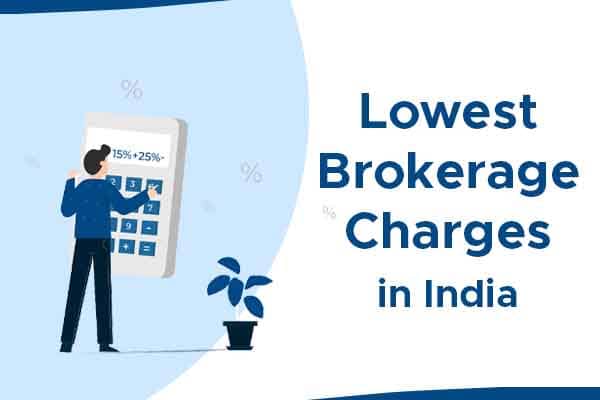In the rapidly evolving landscape of global trade and logistics, the role of freight forwarding companies has become increasingly pivotal. As businesses expand their reach across borders, the efficiency and effectiveness of freight forwarding services are crucial in ensuring smooth and timely deliveries. With technological advancements like augmented reality poised to reshape various industries, including logistics, it’s essential to explore the core qualities and features that define a superior freight forwarding company.
What is freight forwarding service?
Freight forwarding is a service within the logistics and supply chain industry that involves the management and coordination of the movement of goods from one place to another, typically across international borders. Freight forwarding companies, also known as freight forwarders or freight forwarding agent, act as intermediaries between shippers (individuals or businesses that need to transport goods) and various transportation services, such as shipping lines, airlines, trucking companies, and rail operators (Skiba and Karaś, 2022).
The primary goal of a freight forwarding service is to ensure that goods are transported from the point of origin to the final destination efficiently, cost-effectively, and in compliance with relevant regulations and requirements. Freight forwarders provide a range of services that facilitate the entire transportation process, including:
- Booking and Documentation: Freight forwarders handle the necessary paperwork and documentation required for international shipping, such as bills of lading, customs declarations, export and import permits, and certificates of origin.
- Transportation Arrangements: They coordinate the transportation of goods using various modes of transport, such as air freight, sea freight, road transportation, and Rail Freight Transport. This involves selecting the appropriate carriers, booking cargo space, and arranging for pickup and delivery.
- Customs Clearance: Freight forwarders help navigate complex customs regulations and ensure that goods clear customs smoothly at both the export and import points. They handle duties, taxes, and tariffs on behalf of their clients.
- Cargo Insurance: Freight forwarders offer cargo insurance options to protect shipments against damage, loss, or theft during transit. This provides peace of mind for shippers in case unexpected incidents occur.
- Packaging and Labeling: They provide guidance on appropriate packaging and labeling requirements for different types of goods, ensuring compliance with safety and regulatory standards.
- Warehousing and Distribution: Some freight forwarders offer warehousing services where goods can be stored temporarily before they are shipped to their final destinations. They may also provide distribution services to ensure that goods are delivered to the intended recipients.
- Tracking and Communication: Freight forwarders provide real-time tracking and updates on the status of shipments, keeping shippers informed about their cargo’s location and estimated arrival time.
- Risk Management: Freight forwarders help identify potential risks and challenges related to shipping and offer solutions to mitigate these risks.
- Consultation: They offer advice and consultation on the most suitable transportation routes, modes, and options based on the nature of the goods and the client’s specific requirements.
Core Qualities of a Good Freight Forwarding Company:
1. Reliability and Experience:
A reputable freight forwarding company possesses a proven track record of delivering shipments on time and intact. Years of experience contribute to the company’s ability to handle diverse challenges effectively.
2. Global Network:
An extensive network of international partners and agents enables a freight forwarder to offer comprehensive services across multiple regions. This network aids in navigating complex customs regulations and documentation requirements.
3. Customization:
Every business has unique logistics needs. A reliable freight forwarder tailors its solutions to accommodate the specific requirements of each client, optimizing the supply chain process.
4. Advanced Technology Integration:
Embracing innovative technologies such as track-and-trace systems, real-time shipment monitoring, and electronic documentation enhances transparency and communication throughout the shipping journey.
5. Expertise in Regulations:
Navigating international shipping regulations and compliance standards demands a deep understanding of the industry. A proficient freight forwarder ensures adherence to legal requirements and minimizes potential delays.
Features of an Exceptional Freight Forwarding Company:
- End-to-End Visibility: An outstanding freight forwarder provides clients with real-time visibility into their shipments’ progress. This transparency empowers businesses to make informed decisions and manage expectations effectively.
- Efficient Documentation Handling: The complexity of international shipping involves a multitude of paperwork. A top-tier freight forwarder manages documentation meticulously, reducing the risk of delays due to paperwork errors.
- Cargo Insurance Options: Mishaps can occur during transit. A reliable freight forwarding company offers comprehensive cargo insurance options to protect shipments against damage, loss, or theft.
- Multimodal Transportation Expertise: The ability to seamlessly integrate various modes of transportation—air, sea, rail, and road—ensures flexibility and efficiency in adapting to diverse logistical scenarios.
- Customer-Centric Approach: Exceptional customer service sets apart the best freight forwarders. Quick response times, personalized assistance, and proactive issue resolution build strong client relationships.
Augmented Reality’s Role in the Future of Freight Forwarding:
Mostly people are curious to know Is augmented reality the future in any aspect of the field. So yes, it is. As technology continues to revolutionize the logistics industry, the incorporation of augmented reality (AR) holds significant promise. AR can enhance various aspects of freight forwarding:
- Warehousing and Inventory Management: AR can streamline warehouse operations by overlaying digital information onto physical spaces, aiding in efficient inventory management and order picking.
- Route Optimization and Navigation: AR-powered navigation systems can guide warehouse personnel and drivers through optimized routes, reducing travel time and fuel costs.
- Cargo Loading and Unloading: AR can assist in loading and unloading cargo by providing visual cues and real-time information about cargo placement, ensuring optimal utilization of space.
- Training and Skill Development: AR can be used for training new employees, allowing them to familiarize themselves with complex processes and equipment in a virtual environment.
Conclusion:
In the ever-evolving landscape of international trade and logistics, a proficient freight forwarding company is essential for businesses seeking smooth and efficient cross-border operations. The integration of augmented reality further amplifies the potential for enhanced efficiency, accuracy, and customer satisfaction. As technology continues to shape the industry, the core qualities and features outlined above will remain foundational to the success of any exceptional freight forwarding company.
Reference
Skiba, S. and Karaś, A., 2022. The changing role of a freight forwarder in modern supply chains.




